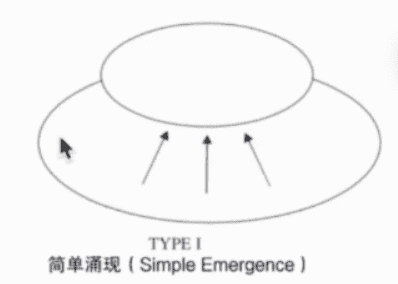Emergence (or emergent)
Emergence (or emergent)¶
Definition
Since simple rules produce complex behaviour in hard-to-predict ways, the macroscopic behavior of such systems is sometimes called emergent ^1.
To be more specific, there are four types of emergencies:
Without any bottom-top feedback, each component uniquely determines the state at the next moment. This form of emergence is characterised by fragility, where the destruction of a single component can cause the system to stop working.
If the macro pattern can only be simulated from the micro components' dynamics, then he is weakly emergent. It can be made stable (e.g., ants foraging) or non-stable (e.g., financial markets, subordination).
Both negative feedback that makes the system stable and positive feedback that makes the system non-stable. Many complex patterns are emergent as a result.
Emergent systems that emerge at a higher level of organisation or complexity, such as culture, language and writing systems, life, and geographic zoning...
-
Melanie Mitchell. Complexity: A guided tour. Oxford University Press, Oxford [England] ; New York, 2009. ISBN 978-0-19-512441-5. ↩
